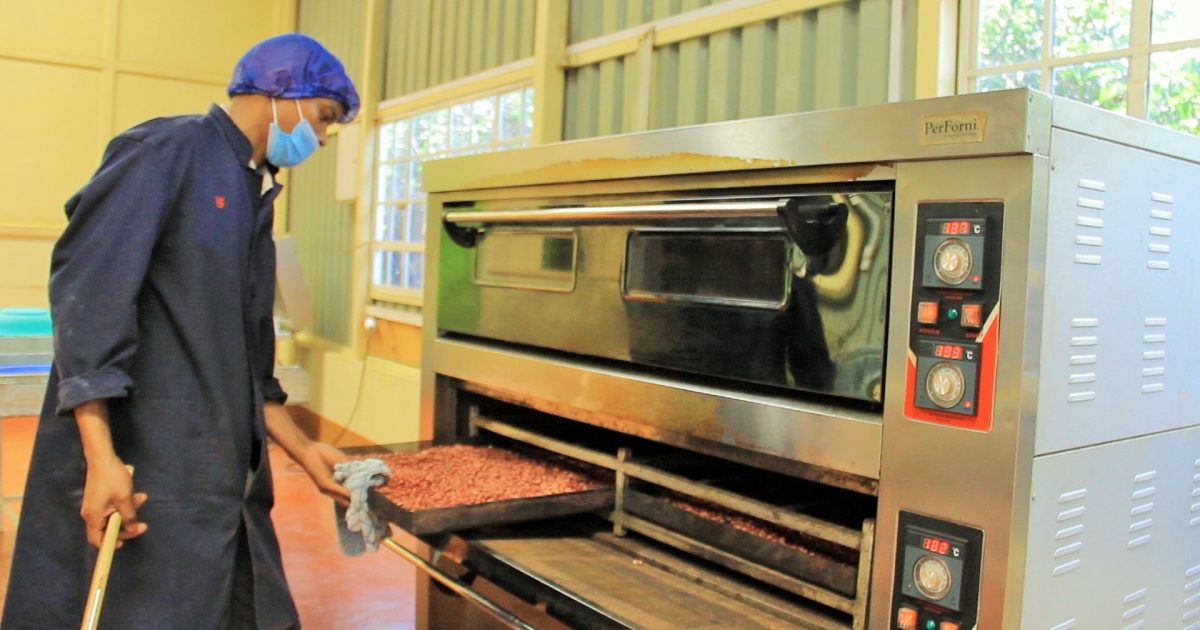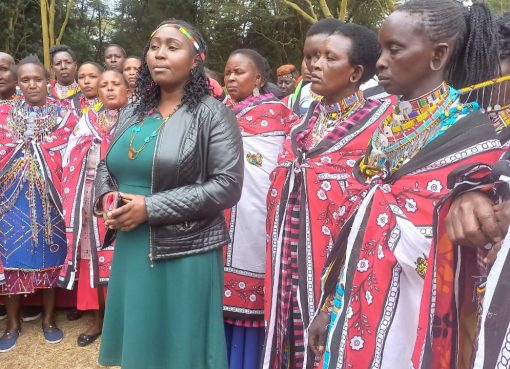Over 2,000 farmers in West Pokot, Baringo, Busia and Elgeyo Marakwet Counties will benefit from a contract farming scheme for the production of groundnuts and honey introduced by a local manufacturer of margarines and spreads.
Farmers who have signed agreements with Nakuru based Bee Care Apiaries International Limited will receive certified seed, fertilizers, agro-chemicals, bee hives and fungicides to support production.
The firm’s Chief Executive Officer, Jackson Masesi, recently said the organization was targeting to have on board 5,000 local farmers and an additional 1,500 beekeepers from Tanzania by next year.
Mr Masesi, who spoke to KNA in Nakuru, said Kenya has unmet demand for groundnuts for both industrial and domestic needs, adding that most local manufacturers of spreads had resorted to importing the raw material from Malawi and Tanzania to meet the deficit.
“We want to cut our reliance on imports and ensure our production chain’s steady supply in a venture that is promising local farmers guaranteed markets, higher and predictable prices. The prices we offer are based on the world markets. Groundnuts are among the most profitable pulses because the price per bag has not dropped to below Sh15,000 for several years,” observed the CEO.
The firm, besides linking farmers to certified seed dealers and manufacturers, also trains them on good crop husbandry that includes planting 30kg of groundnuts per acre instead of 25kg.
Masesi said the company had deployed field officers who ensure that before growers till their land, soil tests are conducted to establish which nutrients are needed and whether it is infected.
He said though groundnuts farming and bee keeping were highly lucrative ventures most farmers did not benefit due to a lack of direct link to markets.
“Brokers and middlemen have taken advantage of this sad state of affairs to the milk desperate farmers dry,” he regretted.
The Company’s entomologist, Alex Asubwa, said contracted farmers were also being sensitized on the importance of bees in the lives of humans which he said has always been underestimated and that enough is not being done to protect the insects.
“According to estimates from the Food and Agriculture Organization of the United Nations (FAO), of 107 crop species, which provide 90 percent of global food, 71 percent are pollinated by bees. Some 20,000 species of bees responsible for fertilizing these food crops are staring at extinction. While the world’s population is increasing day-by-day, the population of bees is steadily decreasing,” Mr Asubwa warned.
He expressed concern that increased use of harmful pesticides and herbicides and destruction of indigenous plants that the insects rely on to make honey was threatening bee populations.
“One of the simplest ways to conserve our bee populations in an agriculturally reliant world is through organic farming. Organic farming standards largely prohibit use of synthetic pesticides and promote use of integrated pest management (IPM) techniques,” explained Mr Asubwa
To ward off middlemen and maximize profits, Bee Care Apiaries International Limited has also been educating farmers on the importance of forming or joining cooperative societies to link them directly to buyers.
“In some areas bee and groundnut farmers are facing serious challenges since they are at the mercy of the brokers who have more say over prices than them. Brokers buy a kilo of un-threshed groundnuts for as little as Sh50, which they re-sell at Sh180,” Observed Masesi
He says his firm is exploring ways of partnering with the European Union funded Market Access Upgrade Programme (Markup) which is being implemented by United Nations Industrial Development Organization (UNIDO) in 12 Counties across the country.
The Sh425.5 million program which was unveiled in November last year and will be implemented for the next four years, aims to equip small scale farmers and small and medium enterprises with capacity building along selected value chains. These value chains include groundnuts, green beans, snow peas, chilies, mango, passion fruits, macadamia, herbs and spices.
This project is also aimed at increasing the quality and quantity of agricultural exports as well as expanding markets within the country and in the East African region.
Masesi further stated that his firm was working with state agencies and research institutions involved in certified seed research, manufacture and certification to educate farmers on the importance of adopting good agronomical practices.
“Farmers need to know growing groundnuts on rotation with other crops such as maize enhances soil fertility and breaks the circle of pests. We are encouraging them to ensure early land preparation and planting at the onset of rains which is crucial in helping curb the spread of pests such as termites, which damage roots, stems and pods,” said the CEO.
Certified seeds, he noted offered farmers up to 20-25 bags per acre of unshelled nuts if good husbandry is done.
He listed some of the certified seed varieties as Valencia, CG7 and ICGV12991 (Spanish types), all of which were developed by the International Crops Research Institute for the Semi-Arid Tropics (ICRISAT) and introduced through collaborative efforts of Egerton University and USAID-Kenya, under Feed the Future Programme.
Groundnuts he said grow well in sandy soils and require a long warm weather with a well-distributed rainfall.
“The plant grows best when the temperature is from 21-26.5°C and with a dry weather of about a month before harvesting. For good yields, the soil pH should be between 6.0-6.5,” he informs adding the company was promoting use of fork jembe to harvest, to prevent breaking the pods.
“Single fork hoe harvests many pods without damaging them unlike when four forked hoe is used,” explained Masesi.
At Bee Care Apiaries International Limited, the process starts with buying the nuts from its contracted farmers at an average of Sh15,000 per 90kg bag. Masesi explains that they sort the nuts to remove dirt such as sand and rotten seeds.
“We then shell and clean them. Later, we put the nuts into the machine, grind and heat for 15 minutes at 170 degrees Celsius. The warm paste is blended with honey and put in bottles to cool and sealed later ready for sale,” he adds.
He claimed that peanut butter blended with honey helps in curbing high blood pressure, heart diseases, stroke and diabetes adding groundnuts are rich in fiber, which is good for bowel health and fats and magnesium to fortify bones.
“It is also good for those that go for workouts in gyms,” stated the CEO.
By Jane Ngugi/Dennis Rasto





